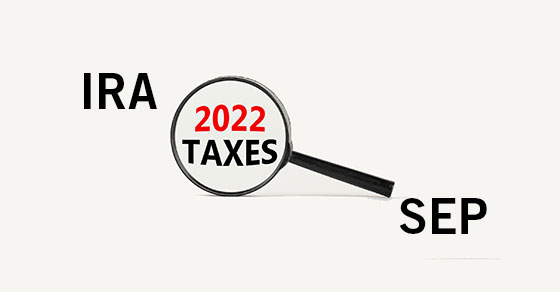Forming a cross-functional sales team
- ByPolk & Associates
- Mar, 08, 2023
- All News & Information
- Comments Off on Forming a cross-functional sales team
A cross-functional team is any group of employees from different departments brought together to solve a problem or fulfill a goal. The concept can really shine, however, when applied to sales and marketing. The idea is to eliminate “silos” by creating a broad, flat structure for a diverse group of professionals to communicate and collaborate on improving sales results. Obviously, you’ll need to include members of the sales and marketing departments. But employees from IT, customer service and finance may also play roles. When effective, a cross-functional sales team can create exciting innovations and accelerate the sales cycle. But developing one will take patience and careful planning.
Renewed warning urging people to carefully review the Employee Retention Credit (ERC) guidelines
- ByPolk & Associates
- Mar, 08, 2023
- All News & Information
- Comments Off on Renewed warning urging people to carefully review the Employee Retention Credit (ERC) guidelines
WASHINGTON — The Internal Revenue Service today issued a renewed warning urging people to carefully review the Employee Retention Credit (ERC) guidelines before trying to claim the credit as promoters continue pushing ineligible people to file. The IRS and tax professionals continue to see third parties aggressively promoting these ERC schemes on radio and online. […]
Supreme Court: Overtime rules still apply to highly compensated employees
- ByPolk & Associates
- Mar, 03, 2023
- All News & Information
- Comments Off on Supreme Court: Overtime rules still apply to highly compensated employees
Under the Fair Labor Standards Act (FLSA), hourly “nonexempt” wage earners generally must receive overtime pay for hours worked beyond 40 hours per workweek. In a recent U.S. Supreme Court case, an employee sued his employer for violating the FLSA’s overtime rules. He was paid wages ranging from $963 to $1,341 per day, resulting in more than $200,000 of annual earnings. But he didn’t receive overtime pay. His employer argued that, as a bona fide executive and highly compensated employee (HCE), the employee was exempt. The Court disagreed. It held that even an HCE isn’t considered salaried if the person is paid daily wages. Therefore, the employee wasn’t exempt from receiving overtime pay.
Awarded money in a lawsuit or settlement? It’s only tax-free in certain circumstances
- ByPolk & Associates
- Mar, 03, 2023
- All News & Information
- Comments Off on Awarded money in a lawsuit or settlement? It’s only tax-free in certain circumstances
You generally must pay federal tax on all income you receive but there are some exceptions. For example, compensatory awards and judgments for “personal physical injuries or physical sickness” are free from federal income tax under the tax code. This includes amounts received in a lawsuit or a settlement and in a lump sum or in installments. However, not all awards are tax-free. For example, punitive damages and awards for unlawful discrimination or harassment are taxable. And the tax code states that “emotional distress shall not be treated as a physical injury or physical sickness.” If you receive a court award or out-of-court settlement, consult with us about the tax implications.
Influencer marketing could help your business (or not)
- ByPolk & Associates
- Mar, 03, 2023
- All News & Information
- Comments Off on Influencer marketing could help your business (or not)
Most business owners who are active on social media would likely agree that building a following and getting meaningful reactions to posts isn’t easy. One way that some companies rise above the din is to not only market themselves on social media, but also engage an “influencer” to do it. Some influencers are famous celebrities; others are just high-profile experts in their fields. Under the right circumstances, just one image or video with a few positive words from an influencer can boost sales. But influencer marketing isn’t for everyone. You’ll need to vet prospective endorsers thoroughly, as well as carefully structure the contract to mitigate risk and ensure a return on investment.
Buying a new business vehicle? A heavy SUV is a tax-smart choice
- ByPolk & Associates
- Mar, 03, 2023
- All News & Information
- Comments Off on Buying a new business vehicle? A heavy SUV is a tax-smart choice
If you’re buying or replacing a vehicle that you’ll use in your business, be aware that a heavy SUV may provide a more generous tax break this year than you’d get with a business car. New and used heavy SUVs, pickups and vans acquired and put in service in 2023 are eligible for 80% first-year bonus depreciation. However, you must use the vehicle more than 50% for business. If your business use is 51% or more, you can deduct that percentage of the cost in the first year the vehicle is placed in service. This tax break is available only if the manufacturer’s gross vehicle weight rating is above 6,000 pounds. Contact us to help evaluate if this is the right move for your business.
There still may be time to make an IRA contribution for last year
- ByPolk & Associates
- Mar, 03, 2023
- All News & Information
- Comments Off on There still may be time to make an IRA contribution for last year
If you’re getting ready to file your 2022 tax return, and your tax bill is higher than you’d like, there might still be an opportunity to lower it. If you qualify, you can make a deductible contribution to a traditional IRA right up until this year’s April 18 filing deadline and benefit from the tax savings on your 2022 return. For 2022 if you’re qualified, you can make a deductible traditional IRA contribution of up to $6,000 ($7,000 if you’re 50 or older). To be qualified, you must meet rules involving your income and whether you (or your spouse) are an active participant in an employer retirement plan. If you want more information, contact us or ask about it when we prepare your return.
Do you run a business from home? You may be able to deduct home office expenses
- ByPolk & Associates
- Mar, 03, 2023
- All News & Information
- Comments Off on Do you run a business from home? You may be able to deduct home office expenses
One result of the COVID-19 pandemic is that many people now work from home. If you’re self-employed and run your business from home or perform certain functions there, you may be able to claim deductions for home office expenses against business income. There are two methods for claiming deductions. With the actual expense method, you claim direct expenses, such as the cost of painting and a proportionate share of indirect expenses, such as utilities, insurance and depreciation. With the simplified method, you deduct $5 per square foot of home office space, up to $1,500. Unfortunately, employees can’t deduct home office expenses. We can help you determine if you qualify and how to proceed.
How might the Internet of Things affect your business?
- ByPolk & Associates
- Feb, 17, 2023
- All News & Information
- Comments Off on How might the Internet of Things affect your business?
Nowadays, almost everything electronic is connected to the Internet or could be, from refrigerators to HVAC to security systems. This phenomenon is known as the Internet of Things (IoT), and business owners should learn about it. There are two big reasons why: 1) To gain or maintain a competitive edge; companies that get the IoT right may reduce costs, gain operational efficiencies, and enhance their ability to harness data to boost productivity and profitability. 2) To heighten awareness of cybersecurity; every IoT-enabled item potentially creates a gateway that hackers could exploit to steal data, hold systems for ransom or otherwise disrupt operations. Contact us for more info.
Child Tax Credit: The rules keep changing but it’s still valuable
- ByPolk & Associates
- Feb, 17, 2023
- All News & Information
- Comments Off on Child Tax Credit: The rules keep changing but it’s still valuable
Over the years, the Child Tax Credit (CTC) rules have changed significantly. For 2022 and 2023, the CTC applies to taxpayers with children under the age of 17 (who meet certain other requirements). The CTC is currently $2,000 for each qualifying child. A $500 credit for other dependents is available for dependents other than qualifying children. You qualify for the full amount of the CTC for each qualifying child if you meet all eligibility factors and your annual adjusted gross income isn’t more than $200,000 ($400,000 if married and filing jointly). Parents with higher incomes may be eligible to claim a partial credit. You must include the child’s Social Security number on your return.











You must be logged in to post a comment.